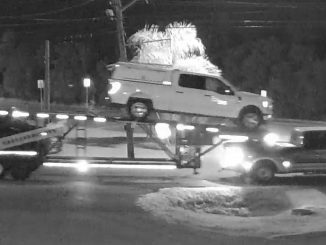
At last . . . those loud commercials that interrupt television programs may soon come to an end. The U. S. Senate passed a bill last week to keep commercials on TV at the same volume as the rest of the programs.
The House has passed similar legislation but the two bills have to be tweeked before they can be set in stone. And that may be in a month or two.
But we’re so used to suffering from loud commercials in the past that a few more weeks won’t destroy us. The main problem has been that the commercials and programs have come from different sources so it has been difficult to regulate the volume of both to coincide. Now, reportedly, they have arrived at a way to make the audio of the programs and commercials compatible.
It should benefit everyone – – the audiences, the stations and the advertisers. After all, fewer people will be pressing their mute buttons when the commercials come on after the sound volume is unified. And more people will get the advertising messages.
It will be a plus for everyone – – the audiences who will enjoy the programs more, the stations which will keep their audiences from clicking them off, and the advertisers who get more people to get their messages. No one will object to the federal government stepping into our private lives in that manner.
Nutria festival would benefit our wetlands
St. Charles Rotary Club’s annual Alligator Festival was as successful as ever this year. There’s another festival that would do our state a lot of good though we doubt there is much interest in starting it. We would benefit from an annual Nutria Festival which would increase the people’s appetite for eating and wearing nutria and getting rid of the boogas that are tearing up our marshland.
It all started some decades ago when the mammal was imported to the swamps of Louisiana from South America to build up a furring industry. Then one day, the fence broke on the yard where that first shipment was caged and we all know the rest of the story. They ran out and spread into our marshland that had never suffered such a ferocious tide of chewing since teeth were invented.
Nutria not only consume the marsh grass but also its roots which gives it little hope of regenerating itself. And the animals multiply so fast that there is little chance for the marsh grass to get ahead.
But we’re sure no one is interested in starting a nutria festival. We’ll have to depend upon the bounties of $5 per nutria tail submitted by trappers to keep them under control. Without that, our marshes would be overrun with millions of live nutria tails . . . while our beloved marshes disappear forever.





Be the first to comment